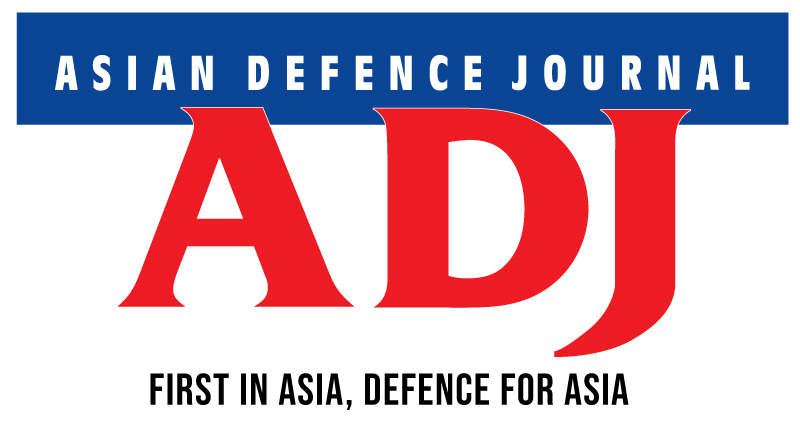EDGE Group Position Itself As Trusted Supplier Amid Shifting Market Dynamics
THE UAE-based group’s senior vice president of international business development Miles Chambers had a chat with ADJ Today during the Defence & Security 2025 exhibition in Bangkok…
ADJ: How would you describe EDGE’s international expansion strategy, and which markets are currently driving the strongest growth?
MC: Since it was established six years ago,, there has been a strong focus on growing our international footprint. Today, we have a very well-established international market covering 91 countries. And this has been driven by a combination of export sales from the UAE, as well as through a number of mergers and acquisitions and joint ventures that we have established around the world.
Latin America and Southeast Asia certainly are growth areas for us, while Africa remains a very strong foothold for our market presence.
ADJ:: With the UAE prioritising defence self-sufficiency, how does the EDGE Group balance global partnerships with strengthening domestic industrial capabilities?
MC: Where we balance the partnerships, this needs to be good for all parties. And making sure that each party is feeling that there is a benefit out of that relationship.
For example, when we invested in Estonia, part of that programme will see the unmanned ground vehicles being built domestically in the UAE, but as well as continuing to be built in Estonia.
Whether that is from a technology development point of view, from a production point of view, or from a market access perspective, it is really about how we make sure that that is a two-way flow across all those domains and for mutual benefit for both parties.
ADJ: Defence technology exports are subject to complex regulatory and compliance frameworks. How does EDGE maintain agility while operating within these requirements across multiple jurisdictions?
MC: The UAE, like many countries, has a very robust export legislation. There is a formal process in terms of applying for export approvals for the sale of military goods to a country. And of course, we follow that process rigorously within the UAE, making sure that we adhere to all the legislation within the Emirates.
Wherever there is export control on capability that is coming from our partners, we meet and we adhere to the export control that governs the company within the jurisdiction in which they’re based.
We also have our own in-house compliance, to make sure that we as a company meet the highest international standards when it comes to compliance, transparency and export controls.
ADJ: The global defence market is dominated by long-established Western players. What are the main challenges in positioning the EDGE Group as a competitive exporter on the international stage?
MC: Although EDGE is a relatively new organisation, many of the companies within the group have been around for more than 20 years, such as NIMR Automotive and Abu Dhabi Shipbuilding, so they have quite a long established market presence already. Through the merger under the EDGE Group, this has given us global scale.
I believe today the market in the world is looking for new players. A lot of the traditional OEMs are also very focused on their domestic markets, particularly across Europe, as Europe looks to increase their defence spending.
I believe EDGE is seen as a trusted player, and is seen as a global competitor within that domain.
In many of these programmes, these are complex projects that require multiple parties coming together. And for us, it is more about how we find opportunities for collaboration rather than as direct competition.
We are a major provider to the UAE armed forces – and this builds a lot of confidence in our export markets. The various products (we provide) have been combat-proven, and that in itself builds a lot of trust in the export market. When we do export programmes, we ensure that we meet the delivery obligations of those contracts, which we have done across multiple export markets.
In terms of size and scale, we are a significant player in the international defence and aerospace sector. Today, we are fortunate to have a high degree of trust from our client base around the market that supports our growth and expansion.
ADJ: Is EDGE exploring expansion into dual-use or civilian technology applications
as part of a broader diversification strategy?
MC: There is a wide range of our capability that today is already dual-use and deployed in the civilian sector.
There are a lot of dual-use applications across a range of the products. We have a good combination of purely military application, but (our products) can also be used in a civilian application.
For example, the KATIM secure gateways are being deployed into telecommunications and other non-defence government agencies.
The HT-100 VTOL platform can be used not just in military applications but for surveillance of pipelines, geographic surveys and power line monitoring.
We always see the opportunity to see whether a product does have applicability into the civil space. Although our primary focus is as a defence and aerospace company, our primary market is for the defence and security customers. But, of course, wherever our products can be applied for dual use, those are definitely the market segments that we would target.
We have companies like EDGE Precision Industries within the group that for a long time havey been a major supplier of aircraft components to both Boeing and Airbus, and the passenger airline business. We have a strong portfolio of having delivered capability into the civil sector as well as the defence sector.ww


